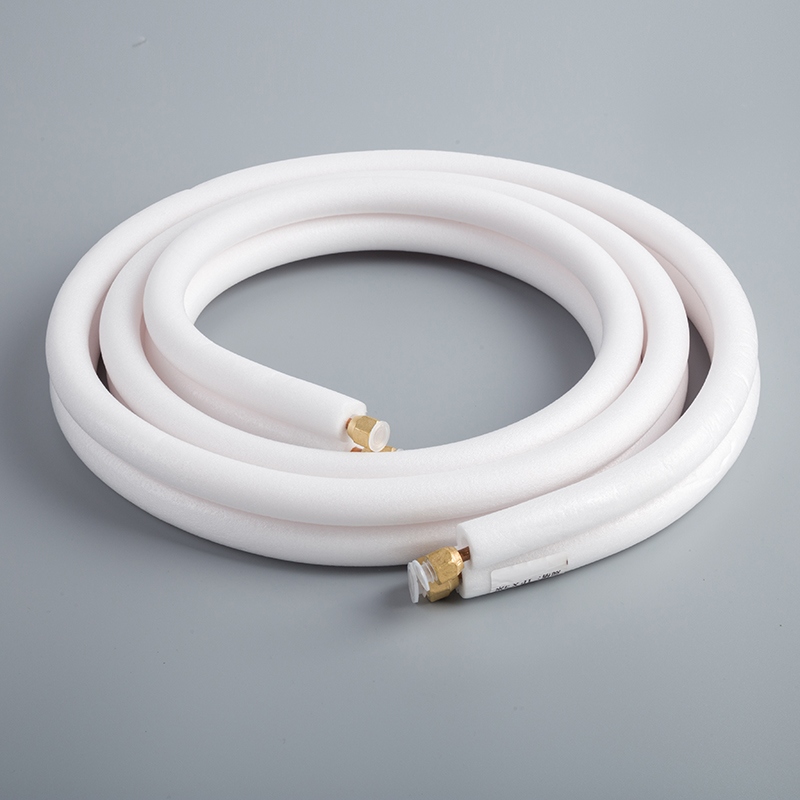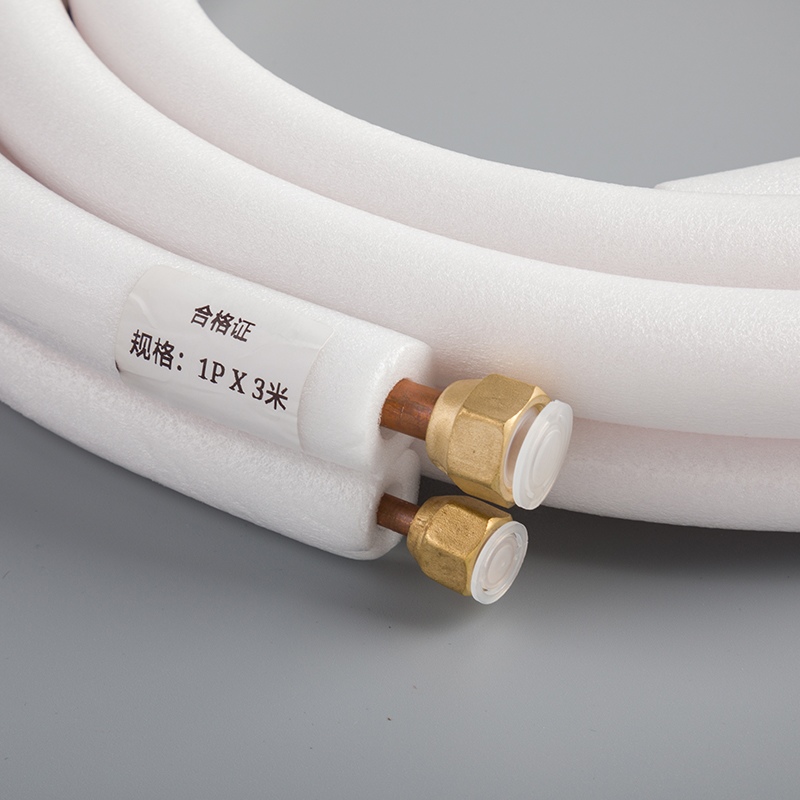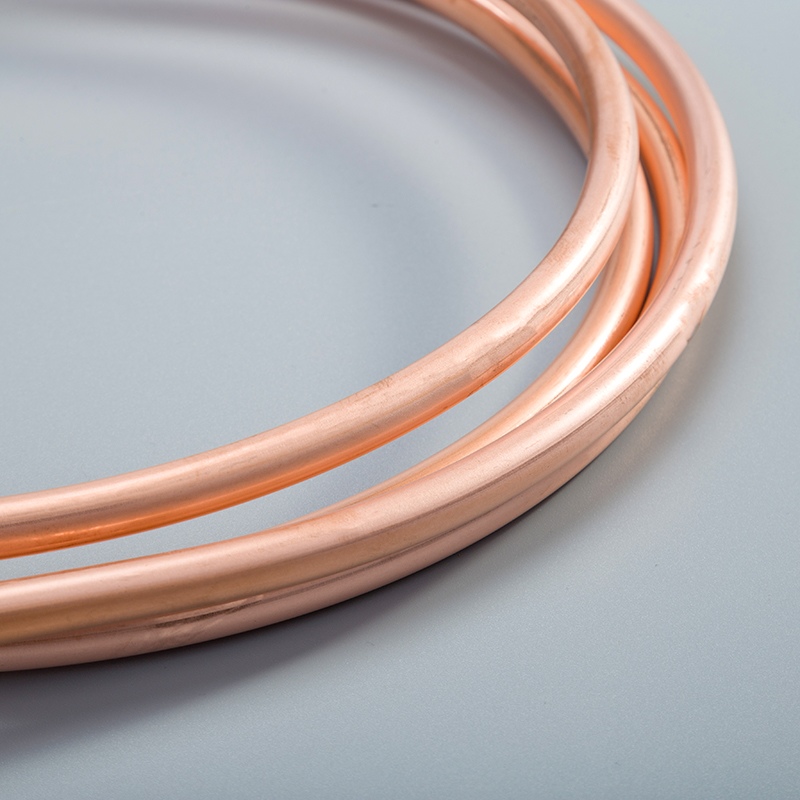Copper Tubing: A Reliable Project Partner

Copper tubing, a staple in modern construction and plumbing projects, plays a vital role in ensuring efficient water distribution and safe gas transfer. This blog delves into the diverse applications of copper tubing - What is a copper tube used for - across various industries, highlighting its durability and environmental benefits. Let's explore the significance of this versatile material and uncover why it is a preferred choice for many construction professionals.
What is a Copper Tube Used For
Copper tubing serves a multitude of purposes across various industries, showcasing its versatility and reliability. In plumbing applications, it is commonly utilized for domestic water supply to ensure clean and safe water delivery for everyday use. Additionally, in heating systems, copper tubes play a crucial role in efficiently distributing heat throughout residential and commercial spaces.
Within HVAC systems, copper tubing finds extensive use in cooling systems where it aids in the effective transfer of thermal energy, ensuring optimal cooling performance. Moreover, in refrigeration units, copper tubes contribute to maintaining low temperatures essential for preserving perishable goods.
In the realm of medical and industrial uses, copper tubing is indispensable for medical gas systems where it guarantees the safe and reliable delivery of gases critical for various medical procedures. Furthermore, in applications like oil and fuel transfer, copper tubes demonstrate exceptional durability and corrosion resistance, making them an ideal choice for transferring essential fluids securely.
The adaptability of copper tubing across these diverse sectors underscores its significance as a dependable material that meets stringent performance requirements while ensuring longevity and safety.
Benefits of Copper Tubing

Durability and Longevity
Corrosion Resistance
Copper tubing exhibits exceptional resistance to corrosion, ensuring a long lifespan for various applications. Its ability to withstand harsh environmental conditions and corrosive elements makes it a reliable choice for projects requiring durability.
Fire Resistance
The inherent fire resistance of copper tubing provides an added layer of safety in construction and plumbing projects. In the event of a fire, copper tubes maintain their structural integrity, helping to prevent the spread of flames and ensuring the safety of occupants.
Environmental Benefits
Recyclability
One significant environmental benefit of copper tubing is its recyclability. At the end of its useful life, copper tubes can be recycled and repurposed without any loss in quality or performance. This sustainable practice reduces waste and minimizes the need for new raw materials.
Minimal Maintenance
Copper tubing requires minimal maintenance throughout its lifespan, contributing to cost savings and operational efficiency. With its long-lasting durability and resistance to wear and tear, copper tubes offer a low-maintenance solution for various industries.
Health and Safety
Antimicrobial Properties
Copper tubing possesses natural antimicrobial properties that help inhibit the growth of harmful bacteria and pathogens. By choosing copper tubes for plumbing systems, users can ensure cleaner water delivery and promote better health outcomes.
Clean Water Delivery
The use of copper tubing in water supply lines guarantees the delivery of clean and safe drinking water free from contaminants. Its smooth interior surface prevents bacterial growth, ensuring that water remains pure as it flows through the system.
Applications in Various Industries

In the Construction Industry, copper tubing serves as a reliable choice for main water lines and fire protection systems due to its exceptional durability and resistance to corrosion. The use of copper tubes ensures a secure and efficient water supply network, vital for sustaining daily activities in residential and commercial buildings. Moreover, in fire protection systems, copper tubing's fire-resistant properties provide added safety by maintaining structural integrity during emergencies.
Within the HVAC Industry, residential HVAC systems benefit from the superior heat transfer capabilities of copper tubing, enhancing energy efficiency and overall performance. By utilizing copper tubes in these systems, homeowners can enjoy optimal heating and cooling comfort while reducing energy consumption. Similarly, in commercial HVAC systems, copper tubing plays a crucial role in maintaining consistent indoor temperatures across large spaces, ensuring occupant comfort and operational efficiency.
In the Medical Industry, the use of copper tubing for medical gas distribution is paramount for delivering gases safely and reliably to support critical healthcare procedures. The antimicrobial properties of copper help maintain a sterile environment essential for medical facilities. Additionally, in laboratory applications, copper tubes facilitate precise fluid transfer without contamination, meeting stringent quality standards required for research and testing processes.
Highlighting the myriad benefits and applications of copper tubing underscores its pivotal role in modern construction and plumbing projects.
Undoubtedly, the reliability and versatility of copper tubing make it a trusted choice for various industries seeking durable and efficient solutions.
Looking ahead, advancements in copper tubing technology are poised to further enhance its performance, ensuring continued excellence in future projects.
See Also
The Definitive Manual for Premium Copper Pipe Connectors
Revealing the Economic Advantages of Dual Copper Pipe Spools
Exploring the Lifespan of Copper Pipes Buried Below


